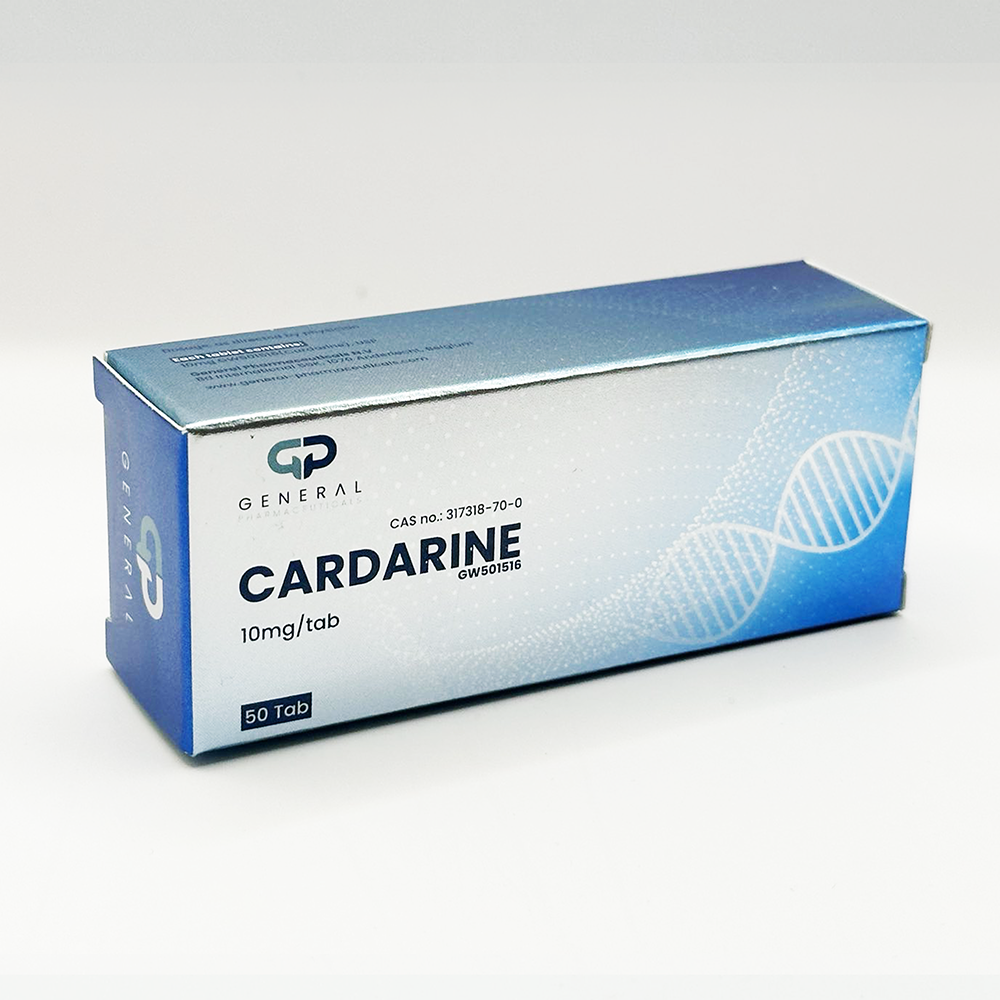
Cardarine (GW501516)
Cardarine (GW501516) is a research compound originally developed to treat metabolic and cardiovascular diseases. Often categorized as a PPARδ (Peroxisome Proliferator-Activated Receptor Delta) agonist, it has gained attention for its potential benefits in fat metabolism, endurance enhancement, and muscle preservation. Although not FDA-approved for human use, it is widely studied in research settings.
Medical Uses
While Cardarine has not been approved for medical use, preclinical research suggests potential benefits in:
-
Metabolic Disorders: Enhances lipid metabolism, which may help in conditions like obesity, diabetes, and dyslipidemia.
-
Cardiovascular Health: Shown to improve blood flow and reduce inflammation in blood vessels.
-
Endurance Enhancement: Increases mitochondrial activity and fatty acid oxidation, potentially benefiting athletes and individuals with muscle fatigue-related disorders.
-
Liver Protection: Exhibits protective effects against fatty liver disease by reducing liver fat accumulation.
Mechanism of Action
Cardarine activates the PPARδ pathway, a key regulator of lipid and glucose metabolism. By binding to PPARδ receptors, it:
-
Increases Fatty Acid Oxidation: Promotes the use of stored fat for energy, reducing fat accumulation.
-
Enhances Muscle Endurance: Boosts mitochondrial function, leading to improved stamina and exercise performance.
-
Regulates Glucose Levels: Improves insulin sensitivity and glucose uptake, which may benefit diabetic patients.
-
Reduces Inflammation: Exhibits anti-inflammatory effects on blood vessels and muscle tissue.
Side Effects
While Cardarine has shown promising effects in animal studies, potential risks include:
-
Cancer Concerns: Long-term studies in rodents indicated an increased risk of tumor formation at high doses. Human data is lacking.
-
Liver Toxicity: Some reports suggest possible liver strain with prolonged use.
-
Digestive Issues: Nausea, mild stomach discomfort, or diarrhea in some users.
-
Possible Cardiovascular Risks: While improving lipid profiles, its long-term effects on heart health are not well understood.
Interactions
-
-
Other PPAR Agonists: Combining with similar metabolic enhancers may lead to excessive lipid metabolism and unknown risks.
-
Stimulants (e.g., caffeine, pre-workouts): May amplify endurance effects but could increase cardiovascular strain.
-
Hormonal Modulators: Limited data on interactions with anabolic steroids or SARMs, though some users combine them for enhanced performance benefits.
-

